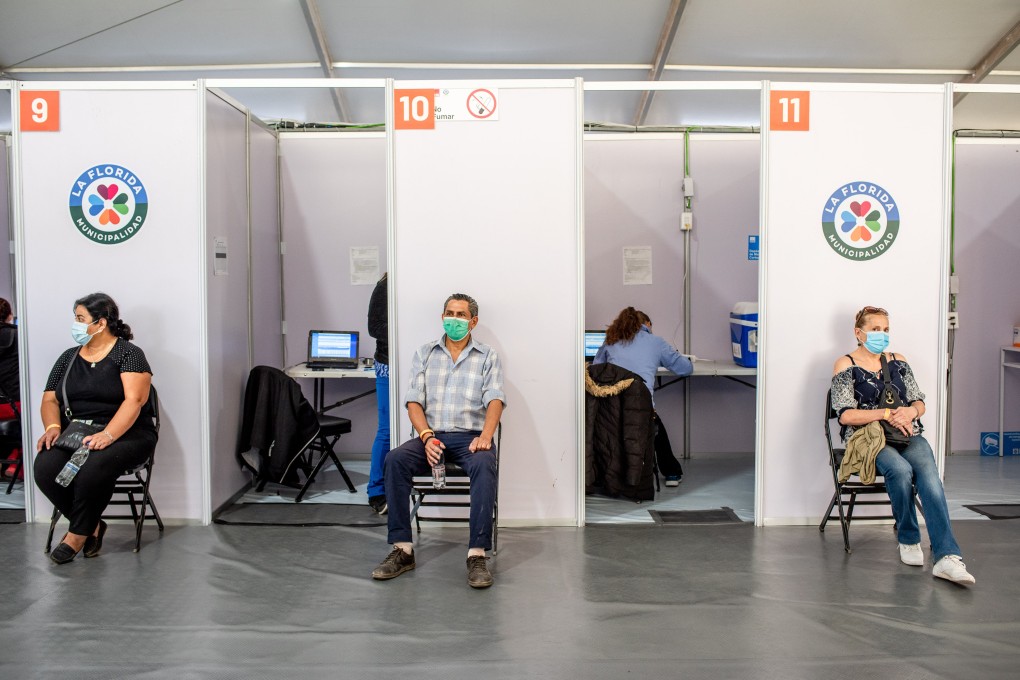Coronavirus vaccines: China’s CanSino distances itself from blood clot fears
- Company tells investors there have been no reports of the serious adverse reactions after 1 million doses
- Authorities in Europe and US are investigating possible links between adenovirus-vectored vaccines, like the CanSino product, and blood clots

The statement came after the US Food and Drug Administration on Tuesday called for a pause in the roll-out of a vaccine made by American firm Johnson and Johnson, pending its review of six cases of severe blood clots among the 6.8 million people injected with it.
The US recommendation came on the heels of a finding last week from the EU’s European Medicines Agency (EMA) of a possible link between a vaccine made by British-Swedish firm AstraZeneca – of which more than 30 million doses have been administered in Europe – and rare cases of blood clots.
The products made by CanSino, AstraZeneca, Johnson and Johnson and Russia’s Gamaleya Institute are all adenovirus-vectored vaccines. They work by taking a virus known to cause common colds and engineering it to trigger an immune response to the pathogen that causes Covid-19.
